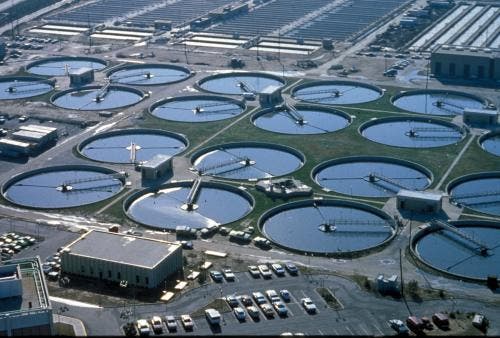So many chemicals enter our water, often in tiny amounts. For example, pesticides from fields can run off into rivers, medicine is peed out into toilets, not to mention the chemicals produced by factories that enter rivers. With fresh water being increasingly scarce, it is important to have sources of safe, clean drinking water. One stumbling block is that it’s hard to remove small amounts of pollutants from water. Current methods use a lot of energy or chemicals. Now, researchers at MIT have created a very efficient method for removing even a tiny amount of pollutants from water. They use an electrochemical process that binds dangerous chemicals and lets clean water go through.
Taking out chemicals
MIT postdoc Xiao Su and a team of researchers at MIT and at the Technical University of Darmstadt in Germany developed this new method to remove contaminants from water. Even small amounts of these chemicals can be harmful if consumed through drinking water. The researchers were able to remove even very small amounts of pesticides, chemical waste, and pharmaceuticals with 96% success.

So here’s how it works: the water flows between surfaces that are treated with chemicals. The surfaces function then as positive and negative electrodes. The “electrodes” are coated with Faradaic materials that can become positively or negatively charged. Depending on their charge, they can tightly bind pollutants and take them out the water. The researchers tested it with ibuprofen, detergent, and pesticides. Even at super low concentration, we’re talking parts-per-million, they could take out the pollutants. They could even remove positive and negatively charged substances at the same time; for example, they were able to remove the pesticides paraquat and quinchlorac simultaneously.
Big-scale
This new method could be used on a personal or regional scale. Perhaps water treatment plants could integrate this technology into their existing systems. These devices could also be placed where chemical waste from factories empties out into water. They could even recover and reuse substances that are bound to charged surface of the water purifier. This way would be good to reduce waste and save money on expensive chemicals.

“Such systems might ultimately be useful for water purification systems for remote areas in the developing world, where pollution from pesticides, dyes, and other chemicals are often an issue in the water supply. The highly efficient, electrically operated system could run on power from solar panels in rural areas for example,” says MIT postdoc Xiao Su.
Right now the researchers are thinking practically, and want to turn their experiment into a technique that is used in real life. They have applied for a patent and making their prototype work on a larger scale. All in all, it could make drinking water a lot safer for us.
Journal reference: Su, X. et al. 2017. Asymmetric Faradaic systems for selective electrochemical separations, Energy & Environmental Science.






